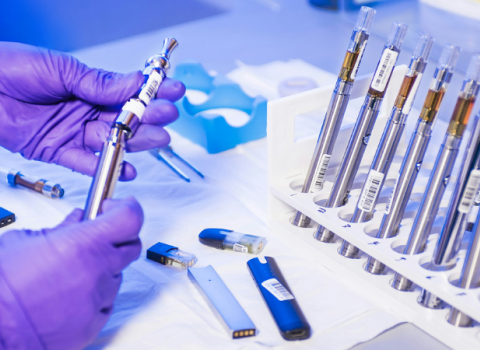Buoyed by government support, the French biotech sector has survived the global financial crisis and a second generation of companies is now emerging. But recent changes in the 2011 budget risk reversing this progress, according to the Life Science Panorama 2010 survey published today (30 March).
Over 263 companies responded to the survey and 211 are included in the analysis, released by the industry group France Biotech, at the BioVision conference in Lyons.
André Choulika, Chairman of France Biotech said the sector’s future is promising. “The study shows that the life science industry in France has never been as lively - partly as a result of support from the French government.”
Despite acknowledging the boost that government policy has given the sector, Choulika warned that reforms set out in the 2011 Budget Bill - in particular, the progressive eradication of the Young Innovative Company (YIC) fiscal status, “Will threaten the survival of many of our companies. France Biotech will continue to lobby the government to backtrack on these recent legislative changes,” Choulika said.
Main trends in 2010
The survey highlights the arrival of a second generation of biotech companies in the medtech, environmental and renewable energy sectors, with the French government encouraging the creation of these kinds of business through its ‘Biotech and Bioresources’ call for projects under the Grand Emprunt (National Bond) scheme.
Most of the life science companies are located in one of three French regions: the Paris Ile de France region, with 33 per cent, the Rhône-Alpes region, with 16.6 per cent and the Provence-Alpes-Côte d’Azurregion, which is home to 10.5 per cent of companies. The mean number of staff on the payroll is 25, versus 19 in 2009.
The survey points to potential riches in the pipelines of development stage medical biotech companies, with oncology and infectious disease as the leading therapeutic and diagnostic areas.
In terms of commercial development, the French listed companies Cellectis, Vivalis and Iris Pharma made acquisitions in 2010. The data suggest that other acquisitions are on the way. A tie-up between Actelion and Trophos was signed in July 2010 and Trophos has also attracted significant international interest in its lead product Olesoxime, which is currently in Phase III clinical trials in amyotrophic lateral sclerosis.
On the other hand, 2010 saw 12 companies go out of business, and it was clear that some corporate alliances took place as a result of financial duress. Even though 2010 was a “remarkable” year in terms of fundraising, France Biotech said it should be noted that 33 per cent of all companies encountered financial difficulties: 20 per cent said they had cash flow problems, 27 per cent needed to raise funds, 7 per cent made staff redundant in 2010, and 5 per cent said they will have to make staff redundant in 2011.
The impact of government funding
In 2010, 114 companies had YIC status, which provides companies less than 8 years old with various tax breaks. During the year, these fiscal incentives leveraged the hiring of 394 R&D personnel - an average of three per company, the launch of R&D projects worth €44 million, and investment in equipment worth €2.2 million.
These figures clearly demonstrate the effect that YIC status has had in strengthening R&D at biotech companies. Recently incorporated life science SMEs are now applying for YIC status at an early stage.
According to an earlier survey by France Biotech in October 2010, the French research tax credit scheme benefitted 27 companies with 1 -10 staff. The total eligible R&D expenditure in 2009 was €167 million, with the deduction of €10 million in repayable advances.
Meanwhile, the state innovation agency Oséo invested a total of €42 million in 344 projects. The proportion of pharma-biotech projects in Oséo's innovation support budget remained stable, at 10 per cent. In 2010 another Oséo scheme, the Strategic Industrial Innovation programme awarded €58 million in financial support to six pharma/biotech projects.
A rise in venture capital financing
On the back of this government support, 2010 saw a revival in venture capital investment. Following a 65 per cent drop in 2009, the total amount of venture capital raised by life sciences companies increased by 56 per cent in 2010, from €65 million to €148 million.
The total amount invested in seed capital funding and first round financing fell by 10 per cent to €20 million, and the number of first round financing transactions fell from 17 in 2009, to 6 in 2010.
Listed biotech companies
The Euronext Next Biotech index, created in April 2008 as a tool for tracking the performance of listed biotechs across Europe at present features 34 companies, of which 17 are French. These are Cellectis, ExonHit Therapeutics, Genfit, GenOway, Hybrigenics, Innate Pharma, Ipsogen, Transgene, Vivalis, Deinove, Carmat, Ipsogen, Neovacs, IntegraGen, Novagali, AB Science and Stentys. Other French life science companies listed on other markets are: BioAlliance Pharma, NicOx, Cerep and Flamel Technologies.





 A unique international forum for public research organisations and companies to connect their external engagement with strategic interests around their R&D system.
A unique international forum for public research organisations and companies to connect their external engagement with strategic interests around their R&D system.